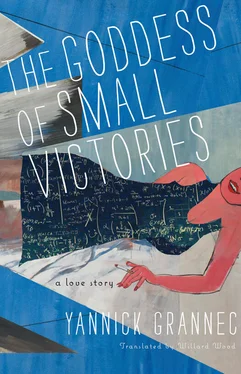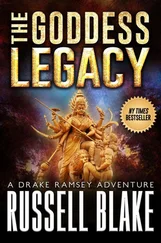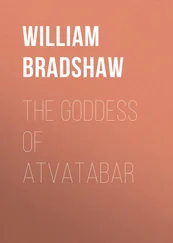“This work will win you a Fields Medal, Mr. Cohen.” 60
“You’re flattering me. No logician has ever won the Fields. Not even you!”
“I was always passed over when it came to honors.”
I rolled my eyes. Who would Kurt ever fool into believing that? Other than the Fields Medal, he had already received everything a mathematician could hope for.
“What subject will you now turn to, having climbed this considerable mountain?”
“There is plenty to keep me busy. I’ve been offered a good position at Stanford. I love teaching. And I’m thinking of attacking Riemann’s hypothesis.” 61
“You’re very optimistic, my boy. But the question of the continuum is not settled. Its undecidability only proves that we don’t have powerful enough tools. We’re still at the very beginning.”
“Do you still hold to the theory of the missing axioms?”
“Your real work as a logician is just starting. You must continue to make the edifice stronger.”
“Isn’t it your edifice too? What are you working on, Dr. Gödel?”
“It’s no secret. I am devoting myself wholly to philosophy. You have demonstrated the undecidability of the continuum hypothesis. I am asking myself about its significance from a philosophical perspective.”
“Are you moving away from pure logic?”
“Philosophy, in my view, must be approached as logic is, axiomatically.”
“I don’t see how you can axiomatize conceptions of the world that are neither universal nor time-independent.”
“Ideas have objective reality. We must devise a nonsubjective language suited to this reality. That is why for years I have been studying Husserl’s phenomenology and its specific applicability to mathematics.”
I signaled the young man discreetly, but he failed to catch my meaning and handed me his empty cup. Now we were doomed to two hours of phenomenology. Luckily, Kurt’s alarm went off just at that moment.
“Please excuse me. It’s time for my medications. I follow a very strict protocol. I’ll be back in a few minutes.”
Paul Cohen was making a serious effort not to appear thrown off by the direction the conversation had taken.
“Do you take much interest in phenimo … phenoli … Damn! The thing is unpronounceable!”
“Incomprehensible too. Is your husband unwell?”
“Pay no attention. He has his pharmaceutical habits. Are you married?”
“I just got married. I met my wife in Stockholm last year. Christina is Swedish.”
“You don’t think that was a little hasty?”
“Happiness won’t wait!”
Had this joyful boy really succeeded where Kurt had failed? Blue Hill suddenly seemed a long way off. Would this sweet kid turn to his Christina one day and say, “I’m having problems”? I was moved by this respectful and enthusiastic young man. I saw in him a vague echo, more solidly fleshed, of what my husband had been. Kurt looked so fragile beside him, so old.
I too had been surprised when Kurt told me that he’d invited Paul Cohen to tea. We no longer invited anyone to visit. Kurt avoided all direct contact with others, even our close friends. It didn’t stop him from calling them at all hours of the night and inflicting long philosophical conversations on them. He avoided public life completely, justifying his unsociable withdrawal by pointing to his precarious health. He had even turned down honors from the University of Vienna and the Austrian government, declined the chance to return as a conqueror. What was he afraid of? That someone would make an attempt on his precious life? That they would induct him by force into the Wehrmacht? That world no longer existed. Unfortunately, he didn’t see time as a flowing stream but as a muddy pond. Everything was mixed together in it, rotting away. My own view was that time had become a viscous substance full of indigestible lumps of habit, a broth one had to swallow despite one’s nausea. His cup of hot water in the morning, his cup of hot water in the evening, the untouched meal, the silence. The accounts on Sunday, and the newspaper left on the seat, always in the same place.
“I’m confused, I thought we would talk shop.”
“Philosophy is not a sidelight to mathematics. On the contrary, it is its substantive marrow.”
“I’ll take your word for it, Dr. Gödel.”
I made a little face at our disoriented visitor. There was no avoiding Husserl now.
“Phenomenology is first and foremost a question. How should we think of thought itself? How do we free ourselves from all the a prioris that clog our perception? How are we to grasp not what we believe to be so , but what is so ?”
“My wife is taking a drawing course. She often says, ‘How can we transcribe not what we know is in front of us, but what is in front of us?’ ”
I crossed my arms to strangle my impatience. If the young man was going to join in Kurt’s game, then he’d better not complain about it afterward.
“Our brains transmit a portion of reality to us. Another portion is prerecorded. Like a lazy painter who places his subject against the same backdrop time after time.”
“But how do you free yourself from all preconception, Dr. Gödel? You would have to have extraordinary mental powers!”
“Husserl says that anyone who really wants to become a philosopher must at a certain point in his life shut himself away from others to try to overthrow all the presently accepted sciences. Then try to reconstruct them.”
“A kind of trance?”
“Husserl prefers to speak of ‘reduction.’ ”
“It’s all too esoteric for me! I am more intuitive.”
Our guest had spoken the fateful word. Reinvigorated, Kurt straightened in his chair. For several years now, his intuition had not been answering his call as often as in the past. He could no longer interrogate reality with the fresh eyes of youth. Experience had turned into a distorting filter, forcing him to retrace familiar paths. His venture into phenomenology held out the hope that his mind, lacking excitement, might find a new virginity. Must one unlearn in order to progress? I had never learned much to begin with, but it hadn’t advanced me much. He didn’t understand my irony: “Suspend your judgment, Adele. You must learn to alter your attention to the world.” As if what I needed was to get away from this world.
“Intuition is too random a shortcut, Mr. Cohen. We should be able to disassemble our thought mechanisms to reach places that our lazy perception forbids us to go, either because of censorship or habit.”
Paul Cohen became absorbed in the pattern of the curtains. He was sorry that he had opened this valve and would have to endure a flood of observations only distantly related to his primary concern: receiving blessings from the master.
“There are no limits to the mind, Mr. Cohen. Only to its habits. Just as there are no limits to mathematics. Only to mathematics circumscribed by formal systems.”
“You seem to be saying that the mind is a simple mechanical object, which one needs to take apart, oil, and put back together.”
“Don’t confuse me with Turing. Human thought isn’t static. It is continually developing. You are not a machine.”
“Yet if the number of neurons is finite, the number of possible states of connection is also finite. Therefore a limit exists.”
“Is the mind exclusively a product of matter? That is a materialist preconception.”
“Why don’t you publish an article on this?”
“And open myself to polite mockery? The zeitgeist is as much against me now as ever! I prefer to study alone in my corner, although I am certain of being in the right.”
“Are you hiding?”
“I am protecting myself. I no longer have the strength for controversy. I am not the first, nor will I be the last. Even Husserl felt that he wasn’t understood. I am certain that he didn’t say everything, so as not to encourage his enemies.”
Читать дальше












